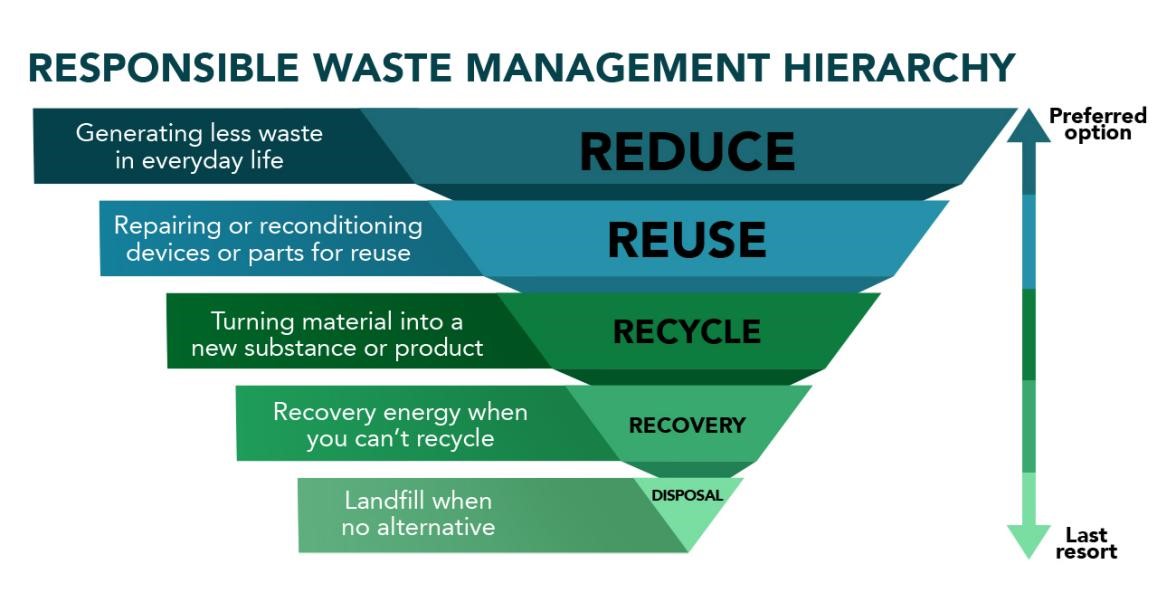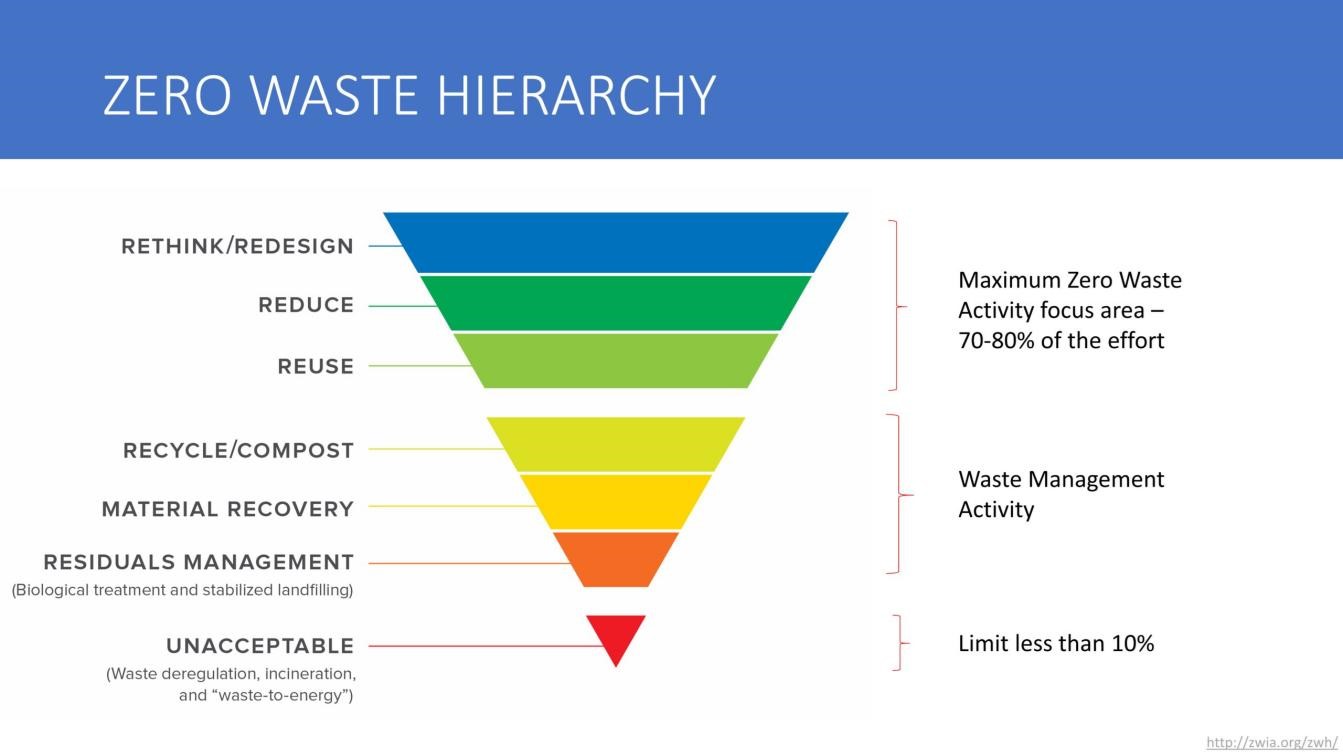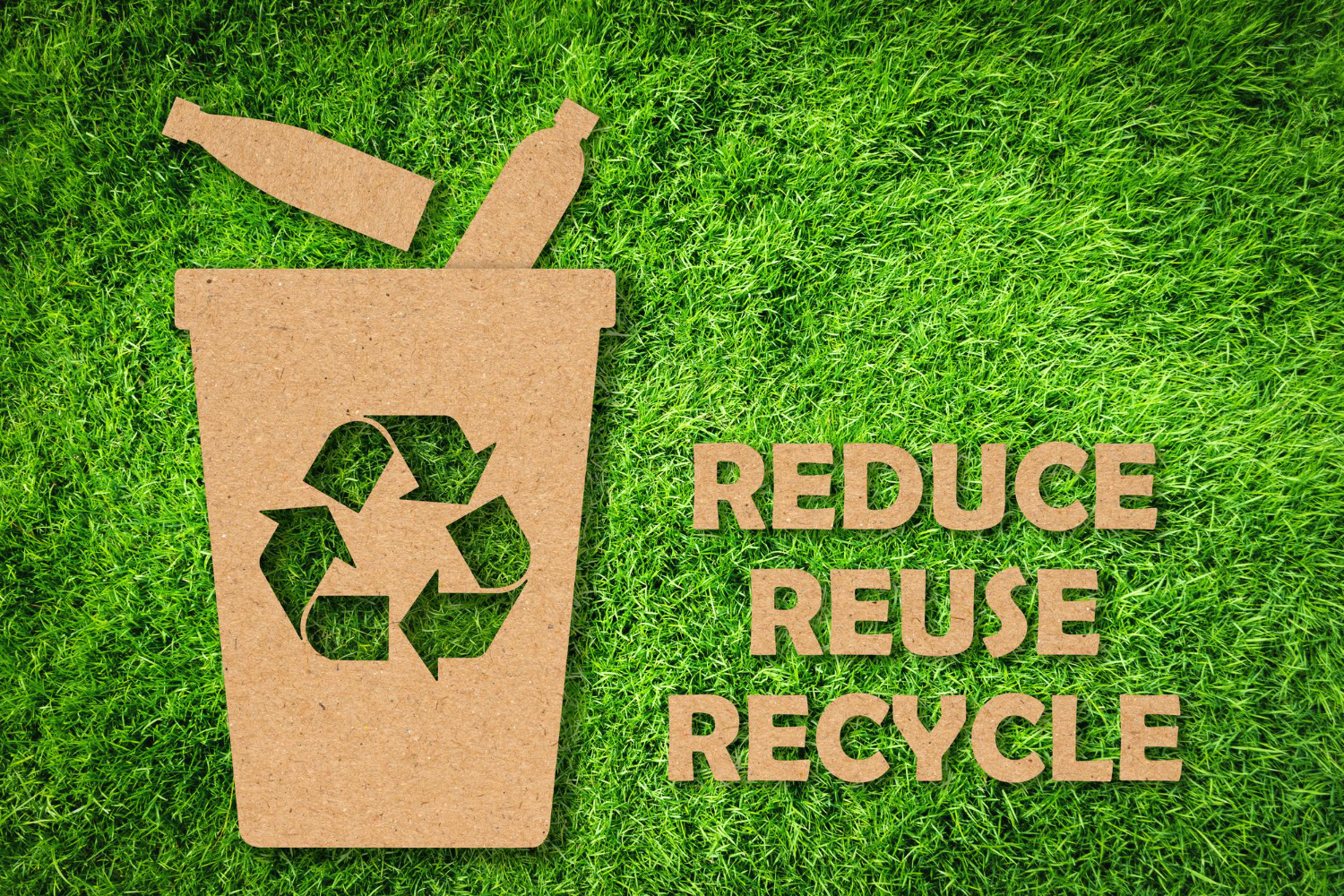There is no denying that we live in a world filled with waste. Climate change may have rightly taken centre stage as the ‘environmental issue of our time,’ but waste in all its many different forms continues to have serious impacts, both ecological and socio-economic. There is anyway a direct correlation between carbon emissions from discarded waste and climate change, as contended by a number of organisations at the COP26 talks held in Glasgow in November, 2021.
As with any trending issue, businesses have reacted in many different ways to the amount of waste they generate. Recycling initiatives have of course been around for decades, as have various efforts to reduce or condition waste. Another effort that has gained traction in recent years has focused on what could be called one of the more ‘extreme’ forms of waste management: Zero Waste.
It’s fair to say that a zero waste business takes waste management to the ‘next level’ in that the focus is total and uncompromising. But what is exactly is meant by ´zero waste´? And how does a business attain it? This article will provide an overview of what zero waste entails and, importantly, provide solutions regarding how to become a zero waste company.
Zero Waste: An Overview
Packaging in its various forms is a major waste stream for many companies. In the UK, plastic packaging alone accounts for over 4 million metric tons of the packaging that goes to landfills. The European Union has calculated that packaging waste in Europe has grown from 81.5 million tonnes in 2007 to 88.4 million tonnes in 2017. Furthermore, business-related disposal is expensive, with landfill taxes and ‘gate fees’ to local authorities having gone up significantly in recent years in the UK. Disposal rates have also gone up sharply for businesses in the United States, where waste disposal costs went up by a median 28% between 2008 and 2017.
Traditionally, businesses have adhered to the well-known five-tiered Waste Management Hierarchy, as below, in order to manage their waste management:

Courtesy: Zero Waste SG
Let one thing be clear: Zero Waste does not mean generating no waste whatsoever. That would be a preposterous assertion! After all, literally every organism on Earth produces waste in some form. It is what is done with the waste that we generate that is of critical importance. The focus of Zero Waste is certainly on reduction of waste, but cannot infer that waste generation per se is not acceptable.
Rather, Zero Waste essentially means that no waste should ultimately land up in a landfill site or be otherwise discarded in any manner that it enters an ecosystem in a way that poses potential detriment to the ecosystem. Zero Waste incorporates different aspects of waste management, chiefly waste reduction, but also reuse or reconditioning, as well as resource efficiency solutions. The emphasis can be seen in the Zero Waste Hierarchy below:

Courtesy: nZEB
The ultimate goal of Zero Waste is to close the waste loop, whereby waste being discarded to landfill is avoided altogether.
An interesting issue is whether or not recycling should be considered part of a Zero Waste strategy. It is a contentious consideration because, even though recycling waste is preferable to outright disposal thereof, most forms of recycling still have serious impacts on the environment and resource use. In turn, recycling processes produce their own, often toxic waste products. Therefore, the emphasis should be on a Zero Waste strategy that minimizes traditional recycling as much as possible. Even so, some forms of recycling can be highly beneficial, such as an initiative in which 100% of business documents that are shredded are used for tissue paper.

Ways To Become a Zero Waste Company
It should be obvious that becoming a zero waste business is not an easy process. However, simplicity can still apply to something that may be difficult or challenging. A paradigm shift in the way that your company deals with its waste need not be complicated or even costly. Below are the principal ways in which a company should tackle becoming a zero waste business, as applicable to a small or medium.sized business as to a multinational.
1. The Waste Audit:
There is simply no better way to commence your Zero Waste journey than by conducting a waste audit. The waste audit needs to be comprehensive, and thus organisation-wide, encompassing all activities and processes that your company undertakes, both regularly and irregularly.
The audit should provide thorough and detailed insight into the various waste streams in your company in terms of types and volumes of waste streams, their locations, and so forth, and to what extent existing waste policies and rules are being adhered to. Finally, the audit needs to be as frank, tough and transparent as possible. Otherwise, why bother?
2. The Waste ‘Snapshot’
The waste audit, if robust and done correctly, should inform you about your existing waste management processes and how efficient (and, invariably, inefficient) they may be. This ‘snapshot’ of your waste management system may reveal aspects of your waste that were hitherto unknown or the scale of which may be more serious than expected.
3. The Waste ‘Gap Analysis’:
Thereafter, the ´what,’ ‘where’ and ‘how’ of your waste management need to be answered. That means the focus should be on what waste streams where in the company need to be revised and improved and how will those improvements be achieved.
The waste audit and resultant snapshot of the prevailing waste management system may even reveal that a sizeable revenue stream has been untapped; for example, large quantities of cardboard waste could be reused by another company and generate revenue that was otherwise being discarded for municipal recycling.
4. The ‘Zero Waste Mandate’:
Now that you have a far better idea of your waste management reality, shortfalls and areas for improvement, the priority should be on establishing your Zero Waste goals. These need to be practical, attainable and, of course, feasible goals. Each and every waste management stream, and various sub-issues thereof, now needs to be assessed on the basis of maximizing their Zero Waste potential.
How do you set those goals as per Zero Waste principles? Let the Zero Waste Hierarchy guide you. For each needed solution/target/goal, you need to ask yourself:
Your three best options:
- Can the activity or process that creates the waste be entirely redesigned or even eliminated? If not…
- Can the waste be reduced in any way? If not…
- Can the waste be entirely reconditioned or reused in any way? If not…
Your next three (not-so-great-but-still-better-than-disposal) options:
- Can the waste be recycled or composted? If not…
- Can the materials in your waste be recovered? If not…
- Can there be some form of residual management, such as biological treatment or (very worse case scenario) some form of stabilized landfilling?
And what if your solution for a given waste issue or stream cannot encompass any of the six options listed above (and preferably one of the first three)? The answer is simple if tough: you need to go back to the drawing board, because disposal should simply not be an option for a company with Zero Waste aspirations.
Ultimately, becoming a zero waste company means being serious about your company’s commitment to waste management. It is waste management that is head-on, sincere and uncompromising. It gives true value to the word ‘sustainable’. It may be challenging and require solid commitment to the cause, but it will surely be worth it, whether to your company, society or the planet.